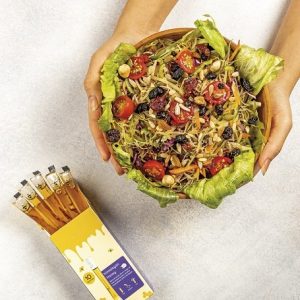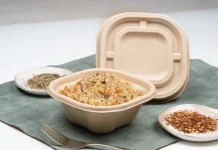
Healthier natural foods, food waste, hygiene, and sustainable delivery systems and packaging are frequently discussed concerns. Jigar Mehta, the managing director of new-age food company Honey Twigs, discusses his Honey Twigs products that address these trends in the context of contemporary lifestyle changes and consumer choices, with the editor of Packaging South Asia.
Packaging South Asia – Please describe the honey market and the concerns that you have that present an opportunity to a company like yours.
Jigar Mehta – As per the Global Nutrition Report, 2021, poor diets are linked to 20% of all deaths worldwide and as many as 12 million people died prematurely in 2018 due to risks linked to the consumption of imbalanced and unhealthy diets. Indians are now witnessing a rise in lifestyle diseases and health concerns; almost 9% of the Indian population is diabetic and 21% of the population is obese and overweight.
Small changes to our daily diet can help address the growing health issues such as replacing refined sugar with healthier sweeteners, and honey is one of the healthier options that can replace refined sugar. It has a lower Glycemic Index compared to refined sugar and contains trace minerals, vitamins and is a source of energy, and does not contain empty calories when compared with refined sugar.
The global market for honey is assumed to be valued at US$ 10.3 billion (Rs 82,400 crore) by 2025 and is growing at a CAGR of 4.8%. India’s honey production stood at 76,150 tons in FY 2013-14 and touched 125,000 tons by 2020-21. The country ranks number eight in global exports, having gone from 28,378 tons in 2013-14 to 59,999 tons by 2020-21.
Currently, honey is mainly sold in jars and squeezy bottles that are messy, lack portability, and lead to a lot of resource wastage as honey sticks in the jars, and customers are not being able to enjoy every drop of it.
To address these issues and bring innovation in marketing and packaging to money – which helps in changing consumer habits, Nectwork Foods was established in 2015 and we launched our flagship brand Honey Twigs.
PSA – How are you building on this opportunity with new marketing concepts and new types of packaging?
Jigar Mehta – Honey Twigs is a result of our ambition and aim to transform honey, into a trendy, mess-free healthy superfood snack as well as establish Honey Twigs as a healthier alternative to table sugar. Each Honey Twigs is a teaspoon (8 grams) of pure honey, available in single serves that can be used anytime, anywhere.

The innovative design is of a single-use stick pack, making the consumption of honey portable – you can carry them in your bag, and place them on your work desk. The stick packs are mess-free – no drips or spillage, unlike bottles. and each stick pack opens with an easy tear. The packaging is hygienic – each twig is a teaspoon (portion pack), just tear the top and squeeze the goodness out, no use of cutlery or cleaning up afterward.
The innovative use of stick packs helps to preserve the resource – the user can squeeze out the honey till the last drop unlike from glass jars, where the wastage is high (approximately 2% or 3%). The effort has been to make consumption fun – the single serves and entire range of infusions and flavors offer variety and choice, bringing back the fun of consuming honey. Lastly, the product is grade A quality honey – only pure and lab-tested honey used in Honey Twigs.
Honey Twigs is available in six exciting honey variants (two natural honey plus four infusions) – Himalayan honey, Natural litchi honey, Cinnamon infused honey, Vanilla infused honey, Lemon infused honey, and Turmeric infused honey.
Due to the above innovation in packaging and flavors, Honey Twigs is growing as a preferred brand in the retail segment, both online and offline. Retail customers are appreciating the innovation in the honey segment, as this packing has made the honey portable and easy to use. Mothers can now pack in honey sachets with their kids’ lunch boxes and honey can now be stocked in offices with ease. Our packing has reduced the damages incurred to a 0% while shipping in eCommerce and is becoming the brand of choice for consumers on Amazon, Big Basket, and other platforms. Also due to their lighter weight as compared to glass, the twigs help in reducing the weight of the parcel, which helps reduce the consumption of fuel in transportation.
For the hotel, restaurants, and catering (HORECA) segment, the single serves are a perfect addition to in-room dining, banquet service, and breakfast service. Portion packs help control wastage (and hence the cost), and help in maintaining hygiene since there are no open bowls or sharing. These are easy to open compared to glass jars and blister packs, with premium looks that allow co-branding (at a minimum quantity) unlike other options. Some of the prestigious hotel clients include Radisson Blu, Marriot, Hyatt, Sarovar, and Ritz Carlton (UAE).
In the quick service restaurants (QSR) and cafes segment and, especially, with the introduction of tea rooms, cafes, and cloud kitchens, the twigs are now playing an important role in providing honey as a condiment in a clean hygienic pack for the customer. The single-serve also helps curtail pilferage and accountability for the company. Our clientele includes Starbucks (India), Costa Coffee (UAE), Chai Point, Café Coffee Day, and several others.
In the catering segment, the ease of use, stocking, and no mess Honey Twigs has become a big part of corporate pantries. Honey Twigs has also made a mark in aviation catering, where it is being served on board airlines due to its benefits such as easy to stock, lower weight of packing, ease of use, and cleaning after usage. Our clients include, Sodexo, Air Vistara, and Go Air.
Honey Twigs has been widely accepted in the international markets. The USPs for our products internationally are the single serve itself and the unique flavors (all made from 100% natural and best ingredients, sourced straight from their source). Today Honey Twigs has its presence in countries such as UAE, Oman, and Bahrain and an online presence on Amazon.com (USA). There is also an active interest from nine other countries in the pipeline.
PSA – How have you thought about the sustainability and recyclability of the packaging and what role does it plays in the design and marketing?
Packaging, whether it is food, cosmetics, electronics, or clothing, has a purpose such as enhancing shelf life, the safety of the product, usability, and attractive looks, to name a few. But unfortunately, packaging fulfills its mission only once. Either it is pulled off in order to start using the product it holds inside, or it is thrown away as soon as the packaging content runs out. The result is the same. It is there just temporarily.
Due to its temporary use, there is growing packaging waste. There is a growing awareness of sustainable packaging among today’s consumers. More and more people are questioning the packaging itself rather than the product inside and there is more pressure for environment-friendly packaging on the brands. The consumer doesn’t mind being educated about the issues and is ready to understand what the brands are doing about it.
What attracts our customers to Honey Twigs is our packaging and the choice of packing material that we use (food safe, transparency, and ease of tear). When we started out finding the correct packing material, the assistance that we received from the packaging material partner SB Packagings is and has always been highly appreciated. We are proud of our association with them since our first prototype.
Our main requirement for choosing the multilayer flexible laminate (PET and PE) was its barrier properties and the ease of tear on the formed sachet. Also what is important for us is the clarity of the packaging once the sachet is formed, so that customers can see the color of the honey clearly. However, we do understand the nuances of the laminates that are non-compostable, and factors in relation to sustainability.
To tackle this issue, we have been working from two directions. Firstly, plastic neutrality – taking care of our environment is a big part of our business as we rely on the bees to produce honey, and giving a safe haven to the bees is of utmost priority. Since we presently use a packaging material that is not biodegradable, we have tied up with an ethical waste management company to help remove, repurpose and recycle the amount of plastic waste from our environment equivalent to the amount we introduce each year. Until now we have funded the removal of approximately; 20 tons of plastic waste which we have generated from day 1. This helps make our footprint plastic neutral and also clean up the environment.
Secondly, the use of sustainable packaging material where, along with our packaging partner, we are working on finding a more sustainable packaging material that is made from a monopolymer, is 100% recyclable, and also can biodegrade in the environment within 3-4 years after being thrown in the dumps. Along with SB Packagings, we have invested in trials of such materials and we are very close to finding a solution that will help mold a better future for our business and our environment.
A growing number of consumers want packaging that offers smaller portions. This coincides with growing senior households and shrinking family sizes. Single-serve sizes are essential. This goes well with the demand for smaller portion options and consumer packaging preferences making practical use important. Our single-serve packing not only addressed the smaller portion size but took away the stickiness attached to honey through packaging and made honey mess-free.
PSA – Some ideas going forward?
We see a very bright future for Honey Twigs and with sustainable packaging, we can actually address the plastic pollution problem and make the consumers understand the benefits of a portion pack. Since we have mastered the art of packing in single serves, we are also looking at packing other healthier products in similar packs. We are also exploring the snacks segment with healthier snacks and at the forefront of our efforts will be the sustainability of the packaging.










